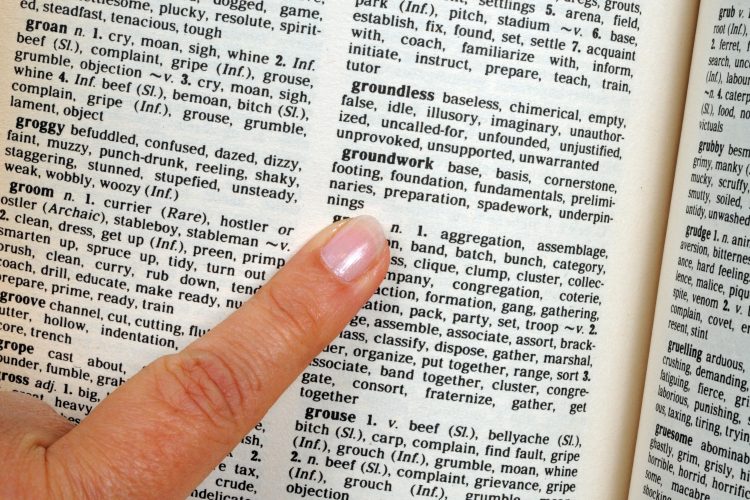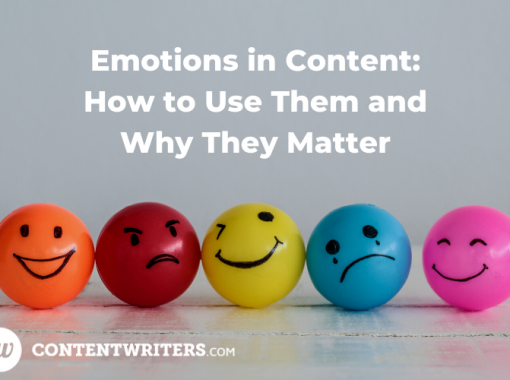
Why Every Content Writer and Editor Should Own a Writer’s Thesaurus
Like the letters R, S, T, L, N, and E in a “Wheel of Fortune” puzzle, the same words appear repeatedly in content writing. These include boost, effective, essential, increase, offer, and provide. We know Stephen King’s book “On Writing: A Memoir of the Craft” advised aspiring writers to throw away their thesaurus and use the first words that come to mind, but the original came out in 2000, and the 10th anniversary version came out in 2010 – years before content writing took off. Surely, such repetition aggravates King as much as adverbs when he shops online for products and services. To prevent content writers from being killed in his next novel, short story, or screenplay, consider buying a writer’s thesaurus. Just use it wisely.
How Content Writers and Editors Should Not Use a Thesaurus
Googling “[word] definition” will help you replace words you’d rather not repeat; however, a lot of content writers and editors choose the first synonym they see – or worse, a word which only sounds intellectual. Writer Jennifer Blanchard admitted to this on the Daily Writing Tips blog.
“Typically when I sat down for a writing session, I would write without stopping until I was done,” she said. “Then I’d go back and edit my piece for typos, misspellings, etc. Once I was finished with all that, I would grab my thesaurus and go through the piece I had just written, changing common words to words I thought were better and made me sound ‘smarter.’ (See everyone! I know how to use big words!)”
“Modern English Usage” author H.W. Fowler and “How to Not Write Bad: The Most Common Writing Problems and the Best Ways to Avoid Them” author Ben Yagoda called these words “elegant variations”.
“In Fowler’s view, and mine,” he said, “elegant variation is not a good thing. Your efforts to avoid repetition are too clumsy and obvious.”
Often, you don’t even need an alternative. For example, he told Writer’s Digest, instead of writing, “Hartnell read the newspaper. When he was finished with the periodical, he got up and went outside,” you could leave it at, “Hartnell read the newspaper. When he was finished, he got up and went outside.” No one uses the word periodical, so you shouldn’t either. In fact, that’s the best use of Google definitions. If you click “Translations, word origins, and more definitions” beneath the word “periodical” and click on the “use over time” chart, you’ll find that the word has been rendered archaic – i.e., obsolete, old-fashioned, extinct.
The Difference Between a Thesaurus and a Writer’s Thesaurus
Whereas a thesaurus hands you a list of synonyms, a writer’s thesaurus tells you how to use a word properly. If its advice is heeded, it also eliminates pretentiousness and fluff.
For example, a lot of content writers use the word “utilize”.
“This is a puff word,” says novelist, short story writer, essayist, and English and creative writing professor David Foster Wallace (Oxford American Writer’s Thesaurus). “Since it does nothing that good old ‘use’ doesn’t do, its extra letters and syllables don’t make a writer seem smarter. Rather, using ‘utilize’ makes you seem like either a pompous twit or someone so insecure that he’ll use pointlessly big words in an attempt to look smart.”
Other contributing editors, including Pulitzer Prize-winning Washington Post critic Michael Dirda, tell writers how to – and how not to – use words from aghast to xylophone. If you think you’re using “like”, “said”, and “very” correctly, you’re probably mistaken.
Dig deeper and you’ll find notes on commonly confused words and word spectrums that “show shades of meaning from a word to its opposite.” For instance, most women would rather be called beautiful than pretty. In the Oxford American Writer’s Thesaurus, a vertical chart reveals that pretty falls nearly 30 slots below beautiful. In fact, it’s only eight words away from fine, which marks the midway point between beautiful and ugly.
So the biggest difference between a standard thesaurus and a writer’s thesaurus is that consulting the latter before writing content or complimenting someone can prevent you from boring readers, or even being slapped.
Already Own a Writer’s Thesaurus?
Great! You’re just the kind of writer or editor that ContentWriters is looking for. Sign up today, so we can start sending you work.
Miranda is a Cleveland-based content writer, magazine writer, editor, and memoirist.




